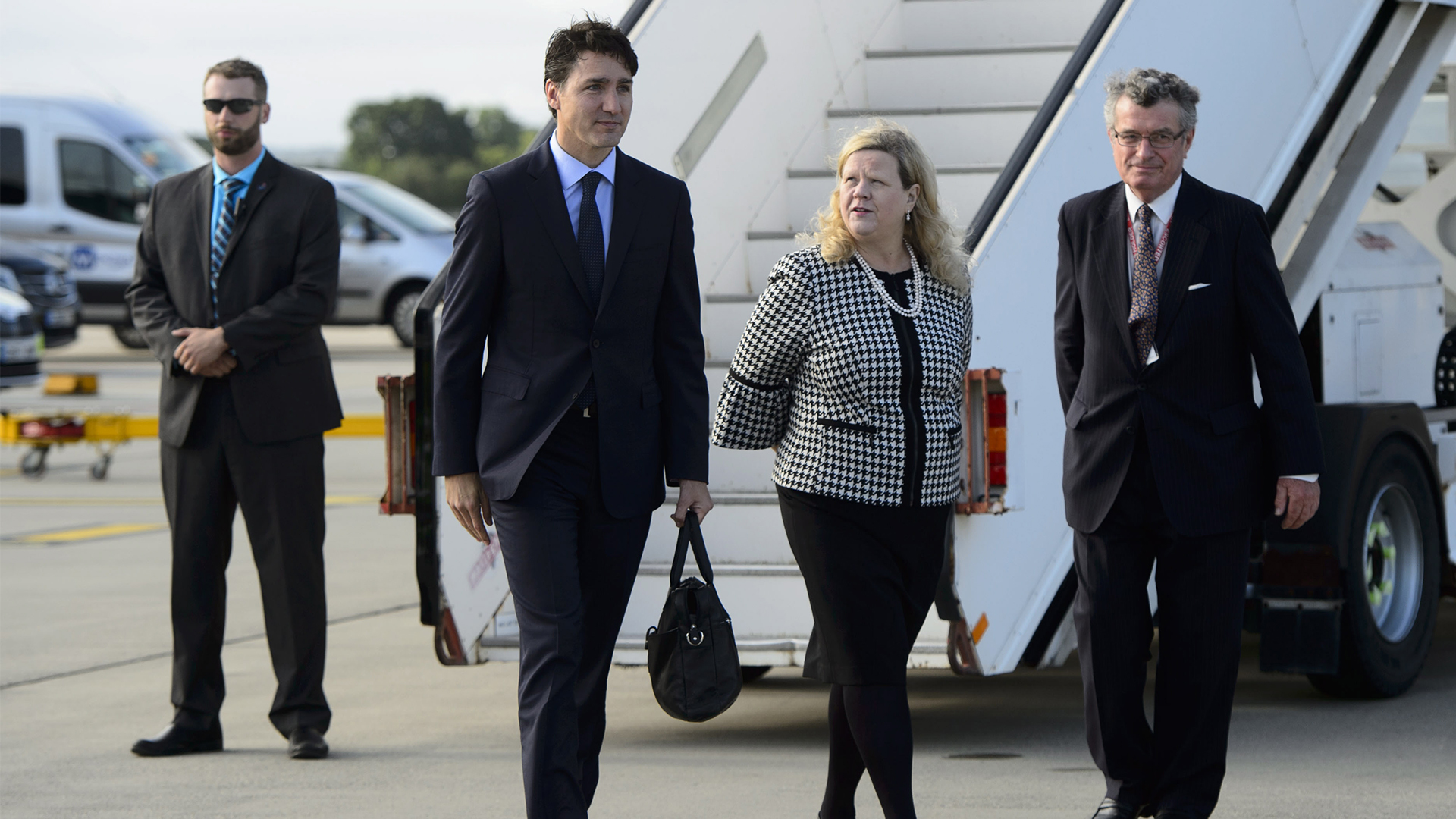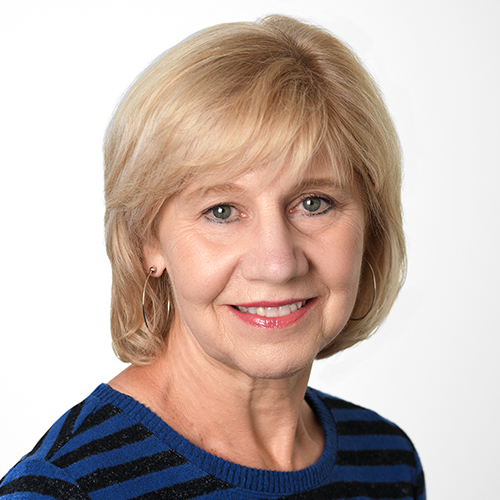
Canada’s public service now has one boss after more than a year with two top bureaucrats. But Ottawa insiders are already speculating whether the newly titled clerk of the Privy Council Office (PCO) will see the Trudeau government through to the 2025 federal election.
Last month, Prime Minister Justin Trudeau permanently moved Janice Charette into the clerk position. Charette has served as interim clerk since Ian Shugart stepped aside for cancer treatment in March 2021. Shugart has since retired from the clerk post after 30 years in the public service and will take on the role of professor at the Munk School of Global Affairs and Public Policy in the fall.
Having two serving clerks at once – one interim and one permanent – was unprecedented.
Being appointed clerk twice has only happened once before, when Trudeau’s father appointed close confidante Michael Pitfield to the post. Former prime minister Pierre Trudeau made Pitfield clerk at age 37, the youngest ever to hold the most senior ranking job in the public service. Joe Clark, after becoming prime minister in 1979, dismissed him, but Pitfield was immediately reinstated when Trudeau returned to office in 1980.
Janice Charette: Preparing Canada’s public service to meet the challenge
Sweeping deputy minister shuffle raises the question, “what took so long?”
Charette has both distinctions. Charette was picked as clerk by former prime minister Stephen Harper. Prime Minister Justin Trudeau replaced her and then brought her back as interim clerk and now has reinstated her as clerk in a permanent position.
“Some thought it was unfair to Janice to be doing the job as ‘interim clerk,’ which could suggest she wasn’t the real clerk. So now she is. Again,” says one former deputy minister who is not authorized to speak publicly.
Lori Turnbull, director of the school of public administration at Dalhousie University says the path of Charette’s comeback was strange and very confusing. Turnbull previously worked on a secondment at the PCO.
Harper, who had a testy relationship with public servants, appointed Charette clerk in October 2014. She managed the Liberals’ transition when Trudeau was elected in 2015 and was welcomed with open arms by public servants.
A little over a year later, the prime minister’s office issued a clumsy and badly worded press release announcing Charette was leaving and being replaced by Michael Wernick, then deputy clerk. Wernick, however, was tasked to come up with a new process to fill the position of clerk “on a permanent basis.”
It left the town bewildered. Public servants were scratching their heads and asking whether Wernick was clerk or not. And why replace Charette with Wernick only for him to have to find a better way to select his replacement?
A swirling rumour at the time was that Trudeau was making way for trusted advisor Matthew Mendelsohn for the clerk job. Mendelsohn, who also helped write the Liberal election platform, was parachuted into PCO as a deputy secretary of a new “results and delivery” unit modelled after the U.K.’s Michael Barber’s deliverology theory.
In the public service orbit, an outsider with a direct link to the prime minister plunked in PCO doesn’t sit well. It’s awkward for the clerk and other deputy ministers and smacks of politicizing the non-partisan public service.
“The optics of her comeback is weird because of the lack of certainty around why she left in the first place,” says Turnbull. “It wasn’t clear whether she left on good terms or bad terms or what happened.”
In 2016, Charette landed a plum diplomatic posting in London as high commissioner for Canada to the United Kingdom. Wernick continued as clerk for three years until he resigned in the fallout of the SNC-Lavalin affair. He was replaced by Shugart, who was the deputy minister at Global Affairs. Shugart was in the job barely a year when he went on medical leave and Trudeau tapped Charette to come back and fill in for Shugart as interim clerk.
“The sense that she may have been pushed out or they wanted to go with somebody else is hard to reconcile with them calling her back and then making her the permanent clerk now,” Turnbull says.
Incidentally, Wernick did propose an arm’s-length process to pick a new clerk, similar to the system for selecting senators or Supreme Court justices. The new process was touted as a way to revitalize a non-partisan public service. Many argue it has become politicized as power is increasingly centralized in the Prime Minister’s Office.
Clearly, Trudeau did not use the process to pick Wernick’s successors and many suspect it will never see the light of day.
Charette’s appointment also dampens speculation about whether Michael Sabia, recruited into Finance as deputy minister, is next in line for the clerk’s job. If Trudeau wanted to bring in someone else, Shugart’s retirement was the chance.
Public servants, however, will notice little difference with Charette formally at the helm.
Many senior bureaucrats express respect for Charette’s decision to return as interim clerk. She hit the ground running and operated with full authority and “not as a seat warmer,” said a senior bureaucrat not authorized to speak publicly. The job is too big and demanding for anything less.
Charette served as a political aide earlier in her career including as Jean Charest’s chief of staff when he was leader of the federal Progressive Conservative Party. She held a number of senior posts, including three deputy minister jobs and deputy clerk.
All-powerful PMO, mistrust “destroying” the public service: Paul Tellier
She also brings stability and continuity to the system. She knows the government, the files and the people, so she brings not only “expertise and experience, but authority and legitimacy which is huge,” says Turnbull.
The Liberal-NDP agreement, which could stave off an election until 2025, could help bring stability for the public service. It has lurched from crisis to crisis over the past two years and has braced for the minority Liberal government to fall.
That’s a long haul for a clerk, a job with a life expectancy between three and five years. Charette has already managed two transitions and stick-handled the pandemic, a new Governor General, resettlement of Afghanistan refugees, the truckers’ protest and a war in Ukraine.
“She has not had an easy time of it, which is why I don’t think you can say the word ‘interim’ or ‘acting’ with what she has had to deal with,” Turnbull says.
And she has more challenges ahead. This includes the fiscal situation, inflation and the rising cost of living, ambitious social programs under the Liberal-NDP agreement, and some 600 orders Trudeau issued in mandate letters to his ministers.
“The criticism is that the agenda is too full,” says one senior bureaucrat. “Her number one message has been: implementation. Focus on implementation.”
Charette must also steer the public service whose post-pandemic jobs are being upended with a shift to hybrid work and technology in a tight labour market. Public servants are tired, many having worked flat-out during the pandemic, and antsy about how the nature of work is changing. Unions are demanding bigger raises and more work-life balance.
Charette and deputy clerk Nathalie Drouin tried to allay those concerns in an appreciation video for National Public Service Week, repeatedly thanking employees for such “dedication and hard work…during a time of great need.”
A recent report indicates senior bureaucrats are worried about the future, too, especially the prospect of losing their role as policy advisors. They worry about declining trust in government; fear senior bureaucrats aren’t “speaking truth to power” and giving the full picture to ministers; a hollowing-out of policy capacity; a post-pandemic economic reckoning; conflicts among levels of government; and the need for public service reform.
Turnbull says driving the public service focus on implementation and delivering services comes with a price.
“If you put the public service in a position where it’s receiving orders to implement, as opposed to actively engaged in policy, then you run the risk of poor policy…and a highly political partisan government,” says Turnbull.
This article was produced with support from the Accenture Fellowship on the Future of the Public Service. Read more of Kathryn’s work in Policy Options.











